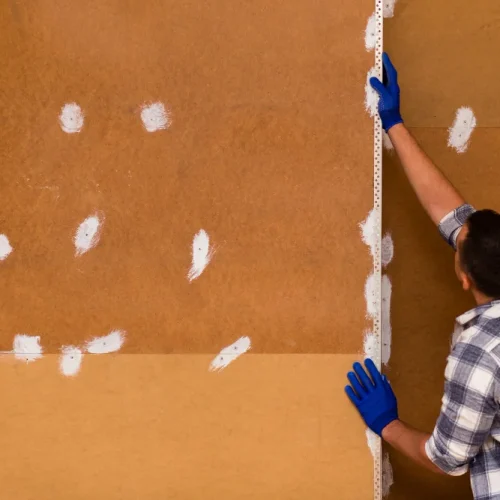Why Do Old Things Hold So Much Power Over Us?
Have you ever walked past a rusted bicycle, an abandoned farmhouse, or a stack of dusty vinyl records and wondered what stories they might hold? For Mike Wolfe, the face of American Pickers, this isn’t just idle curiosity—it’s his life’s work. His passion project is not simply about collecting antiques; it’s about breathing new life into forgotten treasures and, in the process, reviving the spirit of Americana itself.
Wolfe’s journey offers more than nostalgia. It challenges us to consider the value of storytelling, the importance of preserving heritage, and the role that seemingly ordinary objects play in shaping national identity. As someone who has followed his work closely, I’ve come to see how his approach provides lessons not just for collectors, but for anyone seeking to connect more deeply with culture, history, and meaning.
The Origins of Wolfe’s Passion
Mike Wolfe grew up in Iowa, a place where barns and attics often hold generations of untold stories. In interviews, Wolfe has shared that his fascination with forgotten items began when he was just six years old, scavenging discarded bikes from neighbourhood alleys. That childhood hobby eventually grew into a career—and a cultural movement.
“For me, it’s never just about the item. It’s about the story, the person, the history.” – Mike Wolfe
This perspective sets him apart from ordinary collectors. His passion is rooted in the belief that every object has a human story woven into it. When he restores an old sign, a motorcycle, or a jukebox, he is piecing together fragments of American life that might otherwise be lost.
Storytelling as Preservation
What makes Wolfe’s work powerful isn’t just the restoration of objects, but the narratives he builds around them. Storytelling is central to his mission, and it transforms old relics into cultural artefacts with renewed value.
Take, for example, the story of a 1930s Harley-Davidson he once picked. On its own, it was a mechanical marvel, but paired with the story of its owner—a farmer who rode it daily to the fields—it became a window into working-class life in early 20th-century America. This narrative layer is what elevates objects from mere commodities into pieces of living history.
Modern research backs this up. According to the Smithsonian Institution, storytelling is one of the most effective ways of preserving cultural memory because it connects factual history with emotional resonance. Wolfe intuitively taps into this principle, ensuring that Americana doesn’t just survive but thrives in collective imagination.
Americana: More Than Nostalgia
At its heart, Wolfe’s passion project is about reviving Americana. But what exactly does that mean?
Americana is more than red, white, and blue iconography. It refers to the everyday culture, craftsmanship, and traditions that shaped the United States during the 19th and 20th centuries—things like neon diner signs, petrol pumps, and hand-painted adverts. These objects tell stories of community, work ethic, and ingenuity.
Interestingly, cultural historians have noted that Americana often experiences resurgence during times of social change. According to Dr. Sarah Archer, a design historian, revivals of Americana tend to spike when people crave a sense of rootedness and authenticity in uncertain times. Wolfe’s work, therefore, doesn’t just entertain—it taps into a deep cultural need.
Lessons from Wolfe’s Approach
Wolfe’s passion project offers several lessons we can all apply to our own lives and work:
1. See Value Where Others Don’t
Wolfe’s genius lies in spotting value in what others overlook. Whether it’s a chipped Coca-Cola sign or a cracked leather saddle, he sees the story beneath the surface. For business owners, creatives, or even educators, this is a powerful reminder: sometimes the greatest opportunities lie in the neglected corners.
2. Pair Skills with Passion
His career proves that passion alone isn’t enough—it must be paired with skill. Wolfe honed his ability to restore, negotiate, and curate, ensuring his storytelling has material depth. This mirrors what psychologists describe as deliberate practice, the consistent refinement of skill over time.
3. Preserve, Don’t Just Consume
In a throwaway culture, Wolfe’s ethos is radical. He teaches us that preservation isn’t just about nostalgia—it’s an act of respect for those who came before us, and a gift to those who come after.
A Personal Reflection: How Wolfe Changed My Lens on History
A few years ago, I visited a local flea market inspired by Wolfe’s philosophy. Instead of scanning for bargains, I began asking stallholders about the stories behind their items. One vendor told me about a typewriter that had belonged to a war correspondent during the 1940s. Suddenly, I wasn’t just looking at old metal keys—I was holding a witness to world history. That shift in perspective came directly from engaging with Wolfe’s way of seeing the world.
Why His Work Matters Today
In a digital-first era, where trends shift faster than ever, Wolfe’s mission feels timeless. According to a 2023 Pew Research study, over 60% of Americans say they worry that future generations will lose touch with cultural heritage. Wolfe’s projects directly address that concern by ensuring Americana is not only archived but actively celebrated.
Moreover, his work intersects with sustainability. By restoring and reusing, Wolfe demonstrates a practical form of environmental stewardship. This resonates with today’s growing emphasis on reducing waste and valuing longevity.
FAQs
Q: What is Mike Wolfe’s passion project really about?
It’s about preserving and reviving Americana through antiques, storytelling, and restoration. Beyond collecting, he focuses on connecting objects to their human and cultural stories.
Q: Why is Americana important?
Americana represents the cultural identity of the United States through everyday objects, traditions, and craftsmanship. Preserving it helps maintain a tangible connection to history.
Q: How does storytelling play a role in Wolfe’s work?
Storytelling transforms objects into artefacts with cultural and emotional significance. It ensures history is not just remembered, but felt.
Q: Can individuals apply Wolfe’s philosophy in their own lives?
Absolutely. By valuing stories, preserving meaningful items, and seeing potential where others see waste, anyone can embrace the spirit of Wolfe’s approach.
Read Also: How to Stop Being Scared After Watching a Horror Movie?
Final Takeaway
Mike Wolfe’s passion project is more than a personal hobby—it’s a cultural mission. His love for history, storytelling, and the revival of Americana reminds us that every object, no matter how ordinary, can be a vessel of meaning.
So the next time you stumble across a dusty trunk in an attic or a weathered sign at a car boot sale, pause and ask: What story might this hold?
And perhaps, like Wolfe, you’ll find yourself not just collecting objects—but reviving history itself.
Have you ever discovered an item with a fascinating backstory? Share your experience in the comments—I’d love to hear the story behind your favourite find.









